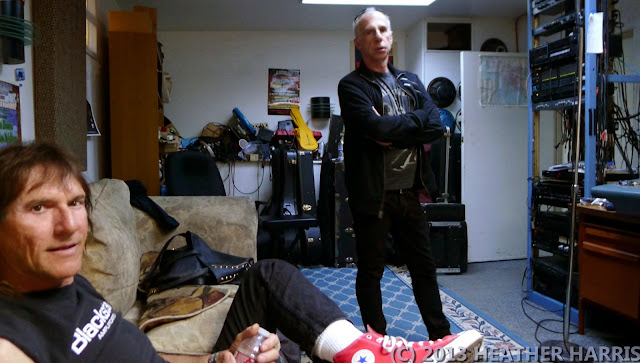And what if the central personality in the movie you watched in this degenerate post WWI environment had as modern an acting style as Robert DeNiro instead of the antiquated, overly melodramatic/overly stylized hamminess usually associated with silent films? Friends, try to rent a copy of Pandora's Box starring Louise Brooks, a late silent film (1929) made in Germany but starring this American actress
- Louise Brooks, who 70 years later turned out to be as intelligent a film writer/historian as the best of 'em with her memoir "Lulu in Hollywood," was a post-flapper American silent film actress of unbelievable beauty, with a timelessness that looks pretty modern today with her chopped, straight MTV hair and black-Goth eye makeup. Her acting style had no relation to silent movie acting at all, no overblown gestures from theatre playing to the back row just sui generis Brooks. She was like a great modern actor that convinces you they are that real person in the role, not an actor. You can't anticipate what she's going to do any more than you can with a stranger.
The story sort of doesn't matter, although in a turgid German way its deliberately degenerate world shows us gold-diggers, murderers, pimps, showgirls, bourgeois a-holes, and filmdom's very first attempted lesbian seduction onscreen. You watch this movie to watch the astonishing, mesmerizing Louise Brooks in action at the height of both her powers and beauty.
Rent the movie. This is a fascinating female heroine to know about anyway, like Isak Dinesen. A beautiful, rebellious iconoclast who was a smart cookie in real life (and purportedly a bit of a slut, another modernism.) Do you remember the scene in Citizen Kane where Jed Leland, Kane's best friend and drama critic, hates Kane's girlfriend's opera that he must review so much that he gets drunk, passes out, and Kane spitefully finishes the intended bad review himself, signs Leland's byline, and fires him? That's based upon Citizen Kane's co-scriptwriter, Herman Mankewiecz's real life experience with Louise Brooks. They saw a play together, he passed out drunk and she playfully wrote his review for him trying to imitate his prose by using words like "paradigm." Which subsequently was published!
Screen capture at the top: Louise Brooks caught en flagrante in Pandora's Box. This is from 1929, people, for a mainstream German film! (although by one of its leading directors.)
And at bottom, her knowing glare...

















































